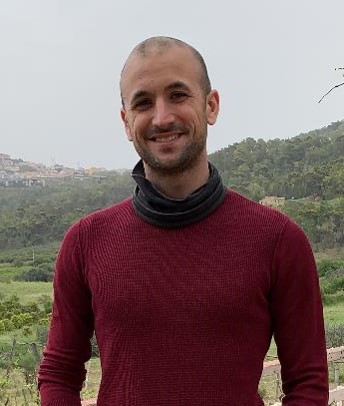Studying at the University of Verona
Here you can find information on the organisational aspects of the Programme, lecture timetables, learning activities and useful contact details for your time at the University, from enrolment to graduation.
Academic calendar
The academic calendar shows the deadlines and scheduled events that are relevant to students, teaching and technical-administrative staff of the University. Public holidays and University closures are also indicated. The academic year normally begins on 1 October each year and ends on 30 September of the following year.
Course calendar
The Academic Calendar sets out the degree programme lecture and exam timetables, as well as the relevant university closure dates..
| Period | From | To |
|---|---|---|
| 1° Semestre | Oct 1, 2023 | Jan 31, 2024 |
| 2° Semestre | Mar 1, 2024 | Jun 30, 2024 |
Exam calendar
To view all the exam sessions available, please use the Exam dashboard on ESSE3. If you forgot your login details or have problems logging in, please contact the relevant IT HelpDesk, or check the login details recovery web page.
Should you have any doubts or questions, please check the Enrollment FAQs
Academic staff
 denise.lovison@univr.it
denise.lovison@univr.it
Study Plan
The Study Plan includes all modules, teaching and learning activities that each student will need to undertake during their time at the University.
Please select your Study Plan based on your enrollment year.
1° Year
| Modules | Credits | TAF | SSD |
|---|
2° Year It will be activated in the A.Y. 2024/2025
| Modules | Credits | TAF | SSD |
|---|
3° Year It will be activated in the A.Y. 2025/2026
| Modules | Credits | TAF | SSD |
|---|
4° Year It will be activated in the A.Y. 2026/2027
| Modules | Credits | TAF | SSD |
|---|
5° Year It will be activated in the A.Y. 2027/2028
| Modules | Credits | TAF | SSD |
|---|
| Modules | Credits | TAF | SSD |
|---|
| Modules | Credits | TAF | SSD |
|---|
| Modules | Credits | TAF | SSD |
|---|
| Modules | Credits | TAF | SSD |
|---|
| Modules | Credits | TAF | SSD |
|---|
| Modules | Credits | TAF | SSD |
|---|
Legend | Type of training activity (TTA)
TAF (Type of Educational Activity) All courses and activities are classified into different types of educational activities, indicated by a letter.
Medicinal chemistry 2 (It will be activated in the A.Y. 2026/2027)
Teaching code
4S011741
Credits
9
Scientific Disciplinary Sector (SSD)
CHIM/08 - CHIMICA FARMACEUTICA
Learning objectives
At the end of the course the student will have:
• knowledge of specific classes of drugs affecting the central and peripheral nervous system, pain and inflammation, the hormonal system (in particular steroids, thyroid hormones and calcium homeostasis). For each class of drugs, knowledge of: chemical-physical properties, structure-activity relationships (SAR), development and optimization, mechanisms of interaction with the biological target, biotransformation, and toxic effects is required.
• Understanding of the mechanisms of action at the molecular level.
• Ability to identify pharmacophoric structures and to relate the chemical-physical characteristics to the pharmacological and possibly toxicological effect.
• Ability to identify the application of drugs in the related pathologies, based on the identification of pharmacophore structures
Examination Methods
The exam consists of a written test that will cover the entire program developed in class. The test lasts 120 minutes and is divided into open-ended questions (relating to specific classes of drugs included in the program, about 30% of the test) and multiple choice questions (about 70% of the test). At the request of the student, and only if the written test has been passed (evaluation ≥18/30) it is possible to integrate the written test with an oral test lasting 20 – 30 minutes.
Evaluation criteria
The exam will evaluate the correctness of the proposed solutions, the ability of critical reasoning, the quality of the presentation and the competence in the use of specialized vocabulary. Mark out of thirty: oral (optional from 3/30 to +3/30.
Type D and Type F activities
Modules not yet included
Career prospects
Module/Programme news
News for students
There you will find information, resources and services useful during your time at the University (Student’s exam record, your study plan on ESSE3, Distance Learning courses, university email account, office forms, administrative procedures, etc.). You can log into MyUnivr with your GIA login details: only in this way will you be able to receive notification of all the notices from your teachers and your secretariat via email and soon also via the Univr app.

 045-8027284
045-8027284







